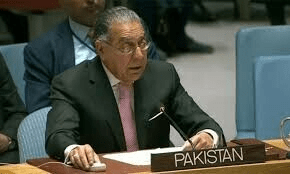TELEVISION news addicts, at least here in Europe, were entranced in the earlier years of this century by the charismatic figure of Yulia Tymoshenko, who had actively participated in the Orange Revolution of 2004 in Ukraine.
Her beautiful and determined visage, hallowed by a shining plait of braided golden hair, reminded many of Joan of Arc fighting for her country’s independence. Later Yulia ended up becoming prime minister of the newly democratised nation in 2004 and once again held that post between December 2007 and March 2010.
After that, she suddenly dropped out of media attention and most TV news watchers, save perhaps Ukrainians themselves, forgot her by and by.
But a limited number, among them journalists and experts, had access to arcane knowledge of her troubles with the authorities and of many an accusation against her that had ranged from political infelicity to profit making and, yes, murder.
The discomforting information trickled down bit by bit into public attention only in October 2011 when she was sentenced to a seven-year prison term for a fraudulent deal while still prime minister in 2009. This had to do with gas supply from Russia that was monopolised by a Ukrainian company –supposedly owned by nobody else but Yulia Tymoshenko herself.
The gas scandal, nevertheless, is relatively the lesser part of our Joan of Arc’s travails as, since January 18 this year, she is facing an additional accusation of complicity in the assassination of Efguen Chtcherban, a Ukrainian gas industry oligarch and elected member of parliament who was shot dead at an airport on November 3, 1996.
Currently, this beautiful and once vivacious soldier of the Orange Revolution is in hospital bed in the Kharkiv prison where she began her seven-year jail sentence soon after the court decision.
But why are we talking about Yulia Tymoshenko in the first place?
We’re doing that because, at the moment, the publication of a book last month is at the centre of a bitter controversy here in Europe. As a matter of fact its author Frank Schumann, a German journalist, had difficulty having the oeuvre published in his own country where Yulia has a popular reputation of a true and indefatigable fighter for democracy.
In his defence Schumann says, as someone who was born and initially brought up on the wrong side of the Berlin Wall in the former Soviet-led East Germany, he has a life-long opposition to ideological thinking: “There’s no such thing as one opinion. There always are many. I had doubts about Yulia’s real personality and to find out the truth I made a number of trips to Ukraine and met politicians, high officials, experts and others. My book is an account of what they think.”
TASTE FOR POWER: Published in Germany as “The Swindler” and in France as “The Princess of Gas”, the book attempts to prove that Yulia Tymoshenko was only motivated by a taste for power and money and little else. As a 30-year-old entrepreneur she quit the family videocassette business to go to Russia in 1990 and to invest her savings of 100,000 rubles in the newly liberalised Moscow stock exchange. A year later her shares were worth 4.5 million rubles.
The book claims Yulia Tymoshenko later launched a gas distribution company registered in Cyprus in which she owned 10 per cent of shares. Then began her political struggle to create a capitalistic economy in Ukraine, not really motivated by democratic ideals, says Schumann, adding that as prime minister of the country in 2009, she managed to transfer the gas supply monopoly to her own company.
Her personal wealth as a result, says the book, rose to 295 million euros (not rubles) within a few months.
Schumann’s critics say although he cites many people in his book, he never quotes a word from the mouth of Yulia herself. Why didn’t he encounter her in order to lend his account a bit of authenticity? The author says he tried, but that he was never allowed by the authorities to approach her.
Public opinion however, in Ukraine itself and in many other European countries, still favours Yulia Tymoshenko. Similar is the case with the international organisations as well. The European Union believes her imprisonment is ‘highly politically motivated’ and the European Human Rights Court has also qualified her detention as ‘arbitrary’. However, should she be convicted on the murder charge, Tymochenko may stay for the rest of her life behind bars.
As these lines are being concluded, news comes in that Ukraine has rejected an offer from the European Union of an interesting trade agreement, on condition that Yulia be allowed to enter a hospital in Germany for medical treatment.
The writer is a journalist based in Paris. (ZafMasud@gmail.com)












































Dear visitor, the comments section is undergoing an overhaul and will return soon.